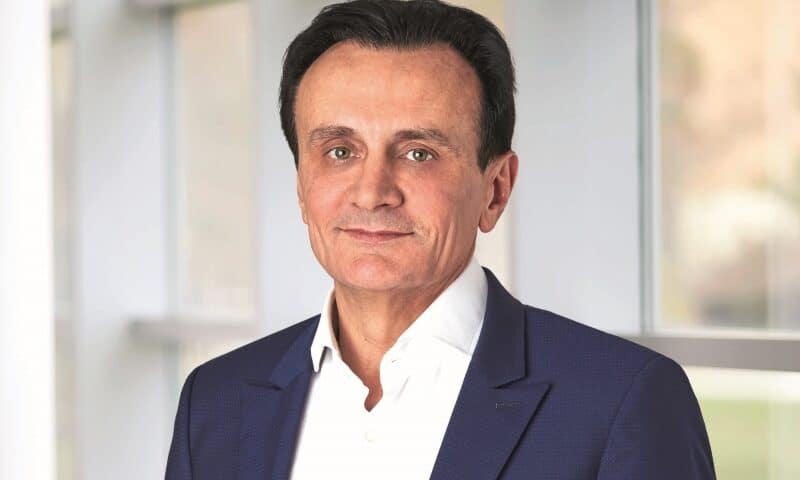AstraZeneca is set to pay Daiichi Sankyo $1 billion to co-develop the antibody-drug conjugate (ADC) DS-1062 outside of Japan. The deal, which features a further $5 billion in milestones, represents a big bet on a solid tumor drug that hits the same target as Immunomedics’ approved ADC Trodelvy.
The target, TROP2, is a transmembrane protein with an extracellular domain that is overexpressed by tumors of the lung, breast, pancreas and other organs and is associated with poor outcomes. Those characteristics have attracted multiple research groups. Pfizer took an anti-TROP2 ADC into the clinic but scrapped the trial after seeing early data, leaving Immunomedics and Daiichi as the front-runners.
Immunomedics won the race to get an anti-TROP2 ADC to market, picking up FDA approval in breast cancer in April, but AstraZeneca has bought into the idea that Daiichi can come from behind to claim a big piece of the market.
AstraZeneca is betting big on that idea. The deal is worth a guaranteed $1 billion that AstraZeneca will give to Daiichi in three roughly equal payments split over the next two years. AstraZeneca is also on the hook for up to $1 billion in milestones tied to regulatory approvals and up to $4 billion linked to sales. In return, AstraZeneca will get an equal share of DS-1062 profits outside of Japan.
The size of the deal suggests AstraZeneca may share Daiichi’s belief DS-1062 could be best in class. DS-1062 has a topoisomerase I inhibitor payload conjugated to a humanized anti-TROP2 monoclonal antibody in a way Daiichi thinks protects the safety margin.
In a phase 1 trial, 38% of the 34 advanced non-small cell lung cancer (NSCLC) patients in the 8.0 mg/kg cohort had partial responses to DS-1062. The response rate across all evaluable patients was 25%, but that larger cohort includes people who received relatively small amounts of DS-1062 in the early stages of the dose-escalation study.
Almost 20% of subjects had grade 3 or worse treatment-related adverse events. Six of the 34 people who received the most efficacious dose of DS-1062 had potential interstitial lung disease. All bar one of the cases was deemed treatment-related. Most of the cases were mild, but one patient died. Daiichi and AstraZeneca also saw cases of interstitial lung disease in breast and gastric cancer patients who received their anti-HER2 ADC Enhertu. Some of the breast cancer patients died.
Despite the adverse events, Daiichi has seen enough potential in the early data to expand the R&D program. In recent months, Daiichi has begun working with Merck to test DS-1062 in combination with Keytruda in NSCLC and added a triple-negative breast cancer (TNBC) cohort to its phase 1 trial. Trodelvy is already approved in TNBC.
AstraZeneca will now share the costs of running those trials with Daiichi. In doing so, AstraZeneca has broadened its ADC collaboration with Daiichi beyond Enhertu, which the FDA approved for use in HER2-positive breast cancer late last year. AstraZeneca paid $1.35 billion upfront for rights to Enhertu in 2019 and was quickly rewarded with FDA approval in breast cancer and positive efficacy data in gastric cancer, an indication in which other anti-HER2 drugs such as Roche’s Kadcyla have failed.

